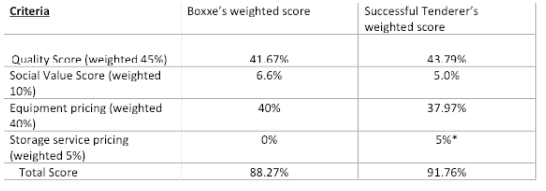
England and Wales High Court (Technology and Construction Court) Decisions
You are here: BAILII >> Databases >> England and Wales High Court (Technology and Construction Court) Decisions >> Boxxe Ltd v The Secretary of State for Justice [2023] EWHC 533 (TCC) (13 March 2023)
URL: https://www.bailii.org/ew/cases/EWHC/TCC/2023/533.html
Cite as: [2023] EWHC 533 (TCC), 207 Con LR 159
